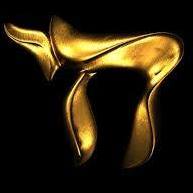In the human body which organ secretes the enzyme renin, producing a rise in blood pressure?
Your body has a huge system involved in the sensation and control of blood pressure, not only within the kidneys, but all over the body - especially in times of great need. This is in contrast to a smaller system called tubuloglomerular feedback, which you can think of as the system that senses and controls blood pressure and glomerular filtration rate within the kidneys on a moment-by-moment basis. When called upon, this smaller system can also rev up the really big system.
When systemic hypotension, or low blood pressure throughout the body, occurs, receptors in your blood vessels called baroreceptors sense this change. Cells of the kidney's juxtaglomerular apparatus get involved as well. Detection by one or both of these mechanisms leads juxtaglomerular cells in the kidneys to release an enzyme called renin. Renin is an enzyme released by the juxtaglomerular cells of the kidneys in response to low blood pressure, causing the transformation of angiotensinogen to angiotensin I.
Angiotensinogen is a precursor protein made in the liver for a hormone called angiotensin I. Essentially, renin catalyzes a reaction that converts the angiotensinogen protein into angiotensin I, which is a precursor hormone that is converted to an active hormone called angiotensin II by an enzyme known as angiotensin-converting enzyme in the lungs.
More Info:
study.com









